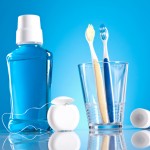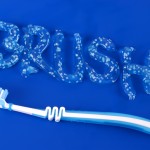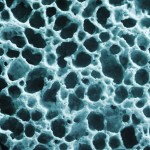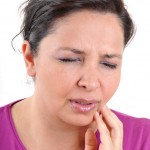
This review identified 12 trials of mouthwashes and toothpastes for oral malodour. Those products with active ingredients reduced oral malodour but the overall quality of the available evidence was weak.
[read the full story...]
This review identified 12 trials of mouthwashes and toothpastes for oral malodour. Those products with active ingredients reduced oral malodour but the overall quality of the available evidence was weak.
[read the full story...]
This new review covers the board topic of the efficacy of anti-plaque chemical formulations for managing gingivitis. 87 heterogeneous studies found a statistically significant benefit with most test products.
[read the full story...]
This Cochrane review included 10 studies and found low quality evidence that fluoride toothpaste containing xylitol may be more effective than fluoride-only toothpaste for preventing caries in the permanent teeth. The evidence for other xylitol products is insufficient to assess effectiveness.
[read the full story...]
While there have been reductions in caries prevalence in many countries ,levels of gingivitis remain high. Toothpastes aid tooth cleaning and provide a useful delivery agent for plaque control agents. The aim of this review was to compare the effectiveness of stannous fluoride (SnF) toothpastes with triclosan-containing (Tcs) toothpastes in improving gingival inflammation and plaque [read the full story…]

Regular and effective removal plaque is considered to be an efective method of controlling and preventing gingivitis. Toothbrushing with dentifrice is a key method and antiplaque agents (eg chlorhexidine, triclosan/copolymer) have been introduced with the aim of increasing effectiveness. The aim of this review was to see if chlorhexidine (CHX) dentifrice /gel was more effective [read the full story…]

The aim of this study was to evaluate the efficacy of three different interventions (non-desensitising toothpaste, desensitising toothpaste and professionally applied dentine bonding agent) in reducing dentinal hypersensitivity over a 2-week, 3-month and 6-month- period in a dental practice setting. In this practice based study patients adults (18-75yrs of age) with at least one sensitive [read the full story…]

The fifth issue of the Cochrane Library for 2013 has three new protocols from the Oral Health Group:- The first protocol is:- Riley P, Lamont T. Triclosan/copolymer containing toothpastes for oral health (Protocol). Cochrane Database of Systematic Reviews 2013, Issue 5. Art. No.: CD010514. DOI: 10.1002/14651858.CD010514. The main aim here is , to assess the [read the full story…]

Earlier this month (Dental Elf 18th Feb) we looked at a systematic review of the use of arginine toothpastes to reduce dentine hypersensitivity. A new study is now available which compares arginine toothpaste, potassium nitrate toothpaste against a standard fluoride toothpaste. Adult patients with at least two hypersensitive teeth were randomised to one of three [read the full story…]

Last year we looked at a number of studies that looked at the effectiveness of various toothpastes in reducing dentine hypersensitivity (Dental Elf 30th October 2012). The aim of this review was to assess the effectiveness of arginine-containing desensitising toothpastes in comparison to control agents in reducing dentine hypersensitivity (DH). The aetiology of DH is [read the full story…]

Dentine hypersensitivity (DH) arises from exposed dentine as a result of various stimuli. The aim of this study was to assess the efficacy of three commercially available toothpastes in the reduction of dentine hypersensitivity. 149 participants (72 males and 77 females; aged 20 to 60 years) were randomised to four groups:- Group 1-toothpaste containing 5% [read the full story…]